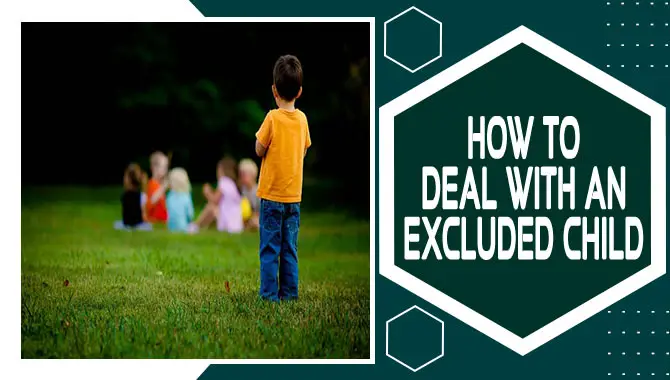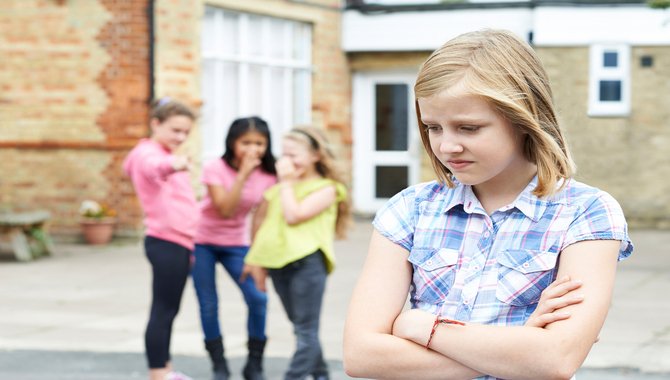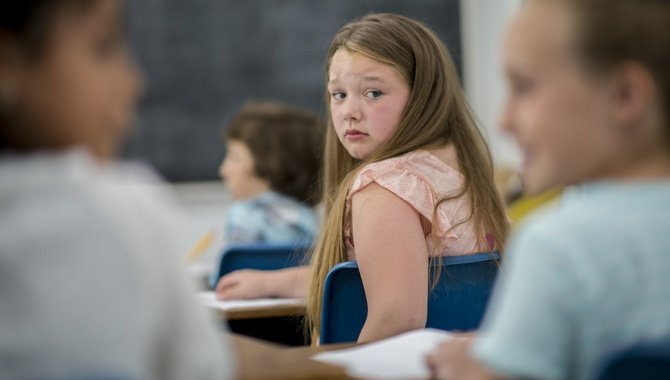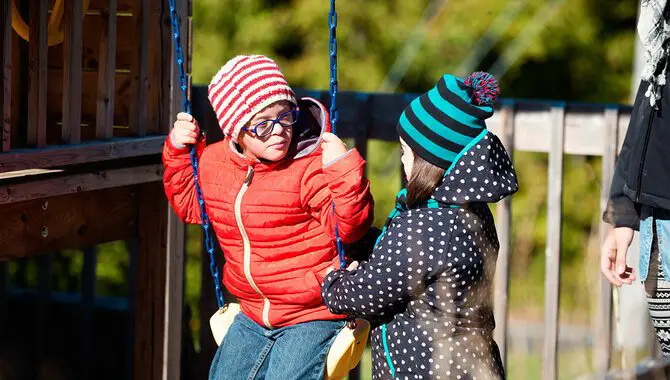Parenting is never easy. But when one of our children comes to us and tells us that they were excluded from their group of friends, it can feel like the end of the world.
We want to do everything we can to help our child cope with this difficult experience. In this blog post, we will explore the different types of exclusion your child might experience, as well as why they might be excluded, and provide tips on how to best support them. Knowledge is power, and understanding what’s happening can help our child feel more in control during this challenging time.

If A Child Comes To You And Tells You Friends Excluded Them

If a child comes to you and tells you that their friends excluded them, it’s important to investigate the situation. This involves speaking to the child about what happened and trying to figure out the reasons for the exclusion.
Depending on the circumstances, you may be able to help facilitate reconciliation between the child and their friends. It’s important to be supportive and guide the child in the right direction.
As Kids Get Older, Friendships, Naturally Change.

It can be tough when friends start excluding a child from their group. After all, friendships naturally change as kids get older. This can be especially tough for a child who doesn’t fit in with their new group of friends. It’s important to remember that children are still growing and need time to adjust.
Give them some space and reach out to them. Offer them an alternative social activity like going out for ice cream or playing video games together.
A Friendship Ending Can Be A Blessing In Disguise.

When one friendship ends, it can lead to a lot of positive changes. Children who are excluded may find new friends much more easily than they thought possible. Not every person that a child meets will be a good friend, but the child should still try to make those connections.
Exclusion from friends can actually be a blessing in disguise because it forces children to grow and learn to communicate better with others. This can make them better people in the long run.
Why Your Child Might Be Excluded From Their Friend Group

It can be difficult when friends stop talking to a child or exclude them from their group. There can be a number of reasons for this, but it’s important for parents to be aware of the possibilities and to take action if they notice any worrying signs.
Some reasons a child might be excluded from their friend group include being difficult to get along with, displaying aggressive or destructive behavior, or withdrawing from social activities. If the exclusion continues, it may be time to seek professional help.
Parents should also monitor their child’s mood and social interactions for any signs of unhappiness or isolation. If you ever find yourself in this situation, reach out to your child and try to re-establish contact.
Tips For Help And Support During This Difficult Time

It can be really tough when your child is being excluded by their friends. It feels like the world is against them, and nothing seems to work.
However, you can do a few things to help support them during this difficult time. Be patient and understanding. It’s hard for kids to adjust when they’re feeling left out, but discussing the situation with them can help you understand what’s going on better.
If all else fails, try getting them back into the group by doing something special together or by being there for them when they need you the most. Remember, they’re not alone. You’ll be there for them no matter what happens from this point on.
How To Deal With An Excluded Child

When children are excluded by their friends, it can be a difficult situation. It’s important for them to feel supported and understood and not feel like the exclusion is also happening to them. The best way to deal with the exclusion is to be patient and understanding.
Try not to extend the exclusion to yourself – make an effort to connect with the child again.
If necessary, seek professional help in order for the friendship triangle to heal. In the meantime, be there for the child, listening and offering support.
1.Understand The Child’s Feelings
It can be tough when one of your child’s friends excludes them from group activities. You want to support them and make things right, but you don’t always know what to say or do. Here are some tips that will help:
- Make sure you understand why the friend excluded the child – try to understand how they feel about it. This way, you won’t come across as judgmental or critical; instead, you will appear supportive and understanding.
- Don’t jump to conclusions – let the child talk about what happened before trying to set things right again without interruption .. let them explain their side of the story first so that there is no misunderstanding on either party’s part.
- Keep communication open so that both parties can get a clear picture of where they stand and what steps need to be taken next in order for everything to go back down smoothly between everyone involved.
2.Make Arrangements For Them.
Telling a child about the death of a loved one is never easy. However, it is important to do so as straightforwardly and honestly as possible.
It’s also important to make sure that the child knows you love them and will always be there for them, even when they are not with you. If possible, involve them in an activity or plan, so they don’t feel left out. You should also make arrangements for their future
– this could include things like daycare or baby sitting. Be supportive and understanding during this difficult time
– it will help your child cope better in the long run.
3.Prepare A Fun Activity To Keep Them Occupied
When a child is excluded from their friends, it can be a difficult experience. As much as you might want to help them heal from the trauma, sometimes they should stay away and process things on their own.
Make sure to plan something fun for your little one when this happens. This way, they won’t feel left out or alone and will eventually start feeling better about the situation.
Explain to them why you made the decision and let them know that they are still part of the family even if they don’t spend as much time with you now. Offer support and understanding when needed, but also set boundaries – make sure your child knows what is acceptable behavior and what isn’t!
4.Remain Supportive
It is natural for parents to feel upset when friends exclude their children. However, it is important to remain supportive even in these difficult times.
This way, the child can process what has happened and may need your support during this time. Try not to give any judgments or offer unsolicited advice – let the child talk about what they are feeling on their own.
It would also be best if you refrain from confronting the friends who excluded the child – this could lead to further conflict and exclusionary behavior from them. Instead, focus on providing emotional support for them during this tough time.
The Different Types Of Exclusion
There are different types of exclusion that children experience, and it can have serious consequences. Some of the most common types are social isolation, emotional isolation, and physical isolation.
Each of these has its own devastating consequences for a child’s mental and emotional health. If you think your child is experiencing any type of exclusion, it’s important to get help. Support groups available can help you address the issue and help your child heal.
Conclusion
Exclusion can be a very difficult experience for any child, no matter their age. Whether it’s due to personality clashes or simply not feeling comfortable around certain friends, exclusion can cause great distress. However, with the right tips and support, your child can overcome this challenging stage in their life. Read through the different types of exclusion and find the support you need to help your child through this difficult time.
Frequently Asked Questions

I’m a writer and blogger who loves to talk about entertainment, culture, and relationships. I love to share my thoughts and insights on these topics, and I’m always looking for new ways to engage with my readers. I’m also a big fan of learning new things, so I’m always exploring new areas of interest.
